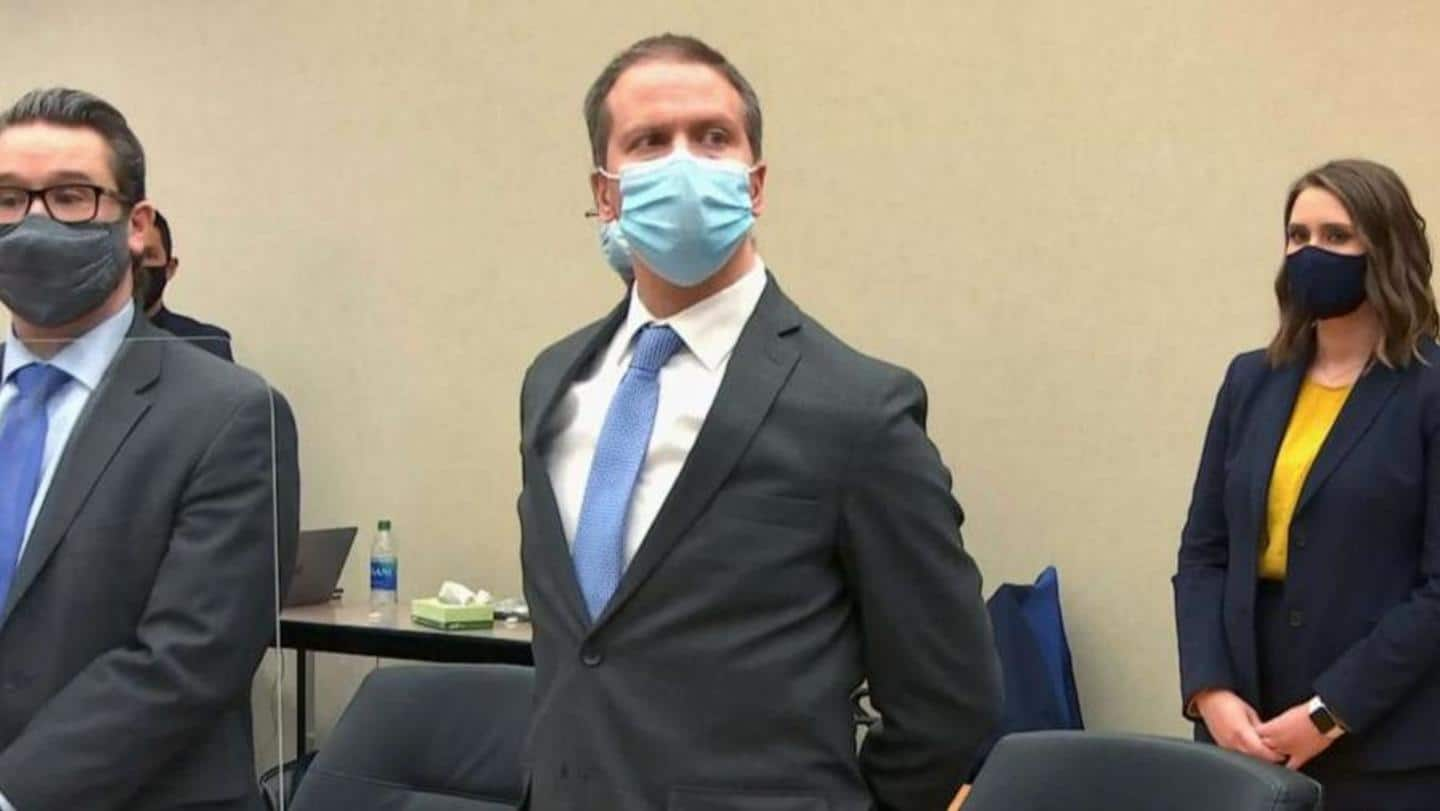
Derek Chauvin gets 22.5 years in prison for Floyd's death
What's the story
Former Minneapolis police officer Derek Chauvin was sentenced to 22 1/2 years in prison for the murder of George Floyd, whose dying gasps under Chauvin's knee led to the biggest outcry against racial injustice in the US in generations.
The punishment— which fell short of the 30 years that prosecutors had requested— came after Chauvin broke his more than yearlong silence in court.
Information
Chauvin could be paroled in about 15 years
He offered condolences to the Floyd family and said he hopes more information coming out will eventually give them "some peace of mind." With good behavior, Chauvin, 45, could be paroled after serving two-thirds of his sentence, or about 15 years.
Emotions
Chauvin showed little emotion when the sentence was pronounced
In imposing the punishment, Judge Peter Cahill went beyond the 12 1/2-year sentence prescribed under state guidelines, citing "your abuse of a position of trust and authority and also the particular cruelty" shown to Floyd.
Chauvin was immediately led back to prison. As with the verdicts in April, he showed little emotion when the judge pronounced the sentence.
Information
Charges on which Chauvin was convicted
The fired white officer was convicted of second-degree unintentional murder, third-degree murder, and second-degree manslaughter for pressing his knee against Floyd's neck for up to nine-and-a-half minutes as the 46-year-old Black man gasped that he couldn't breathe and went limp on May 25, 2020.
Cruelty
Nine-and-a-half minutes of cruelty to a helpless man: Prosecutor
Prosecutor Matthew Frank asked the judge to exceed sentencing guidelines and give Chauvin 30 years in prison, saying "tortured is the right word" for what the officer did to Floyd.
"This is not a momentary gunshot, punch to the face. This is nine-and-a-half minutes of cruelty to a man who was helpless and just begging for his life," Frank said.
The anger
Floyd's arrest last year had led to worldwide protests
Bystander video of Floyd's arrest on suspicion of passing a counterfeit $20 bill at a corner store had prompted protests around the world and led to scattered violence in Minneapolis and beyond.
Floyd's family members took the stand and expressed sorrow about his death.
"We don't want to see no more slaps on the wrist," said a tearful Terrence Floyd, one of Floyd's brothers.
Quote
Our family is forever broken: Floyd's nephew
Floyd's nephew Brandon Williams said, "Our family is forever broken." And Floyd's seven-year-old daughter, Gianna, in a video played in court, said that if she could say something to her father now, it would be— "I miss you and I love you."
Landmark
This sentencing is a rare occurrence in American history
With Chauvin's sentencing, the Floyd family and Black America witnessed something of a rarity— In the small number of instances in which officers accused of brutality or other misconduct against Black people have gone to trial, the list of acquittals and mistrials is longer than the list of sentencings after conviction.
"Everybody knows that this doesn't happen every day," a civil rights attorney said.
What next?
Three other officers also stand trial
"That's why the world has watched this trial because it is a rare occurrence," Arizona-based civil rights attorney Benjamin Taylor, who has represented victims of police brutality, said.
The three other officers involved in Floyd's arrest are scheduled for trial in March on state charges of aiding and abetting both murder and manslaughter. They will also stand trial on federal civil rights charges.